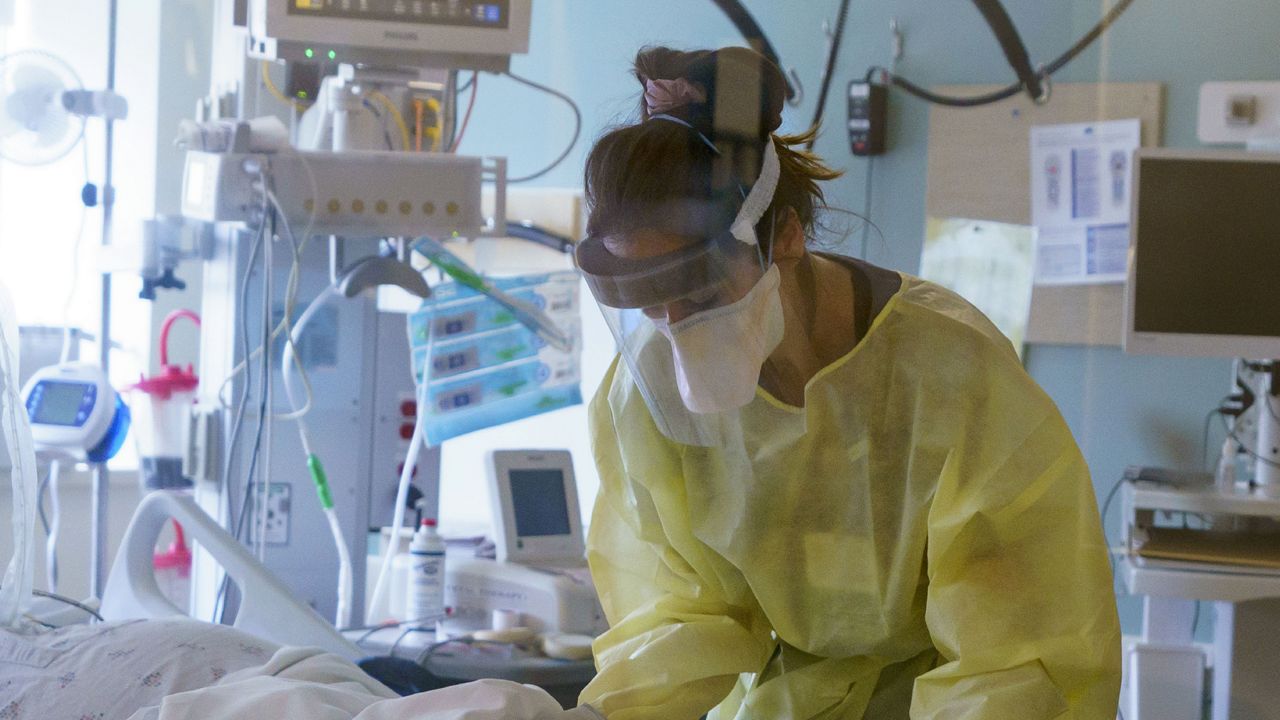The Biden administration on Thursday announced it will release $103 million to address burnout and mental wellness for those in health care professions as the coronavirus pandemic stretches into its third year.
The funding announced Thursday, which will come from the American Rescue Plan, will be awarded through the Health Resources and Services Administration over the course of three years to 45 separate grant recipients.
“This funding reflects the Biden-Harris Administration’s commitment to ensuring we have enough critical frontline workers by supporting health care providers now and beyond as they face burnout and mental health challenges,” HHS secretary Xavier Becerra wrote in part. “We will continue to promote the well-being of those who have made so many sacrifices to keep others well.”
Grantees will receive the funds through one of three programs:
The Health and Public Safety Workforce Resiliency Training Program will receive $28.6 million for 10 organizations – from the Massachusetts League Of Community Health Centers in Boston to Centro De Salud De La Comunidad De San Ysidro in California – for evidence-based training to support the mental health of their workforce
The Health and Public Safety Workforce Resiliency Training Program will receive $68.2 million for 34 organizations to “help reduce burnout and promote resilience” among those in health care or nursing, as well as firefighters, law enforcement officers and emergency response personnel
The Health and Public Safety Workforce Resiliency Technical Assistance Center will receive $6 million for George Washington University so it can provide training and technical support to other grant recipients
Many cohorts have faced growing mental health concerns amid the pandemic, but perhaps none as much as first responders and those in the health care system, who must expose themselves to the virus on a near-daily basis. Hospital workers, who are again facing a surge of cases due to the omicron variant, have reported feeling increased stress, anxiety and fear over the course of the past several years.
The funds aim to reduce burnout in the “high-stress environment” of health care, an industry that was already struggling before the highly-contagious omicron variant became the dominant strain of COVID-19 in the U.S.
Hospitals are now dealing with serious staff shortages because so many health care workers are getting sick with the fast-spreading variant.
The pressures are prompting hospitals to scale back non-emergency surgeries and close wards, while National Guard troops have been sent in in several states to help at medical centers and testing sites.
Frustration and exhaustion are running high among health care workers.
“This is getting very tiring, and I’m being very polite in saying that,” said Dr. Robert Glasgow of University of Utah Health, which has hundreds of workers out sick or in isolation.
There is a growing fear that some health care professionals may, for the sake of their mental health, choose to leave the industry at a crucial time. One study, published in the medical journal ScienceDirect in late December, found that of the 20,665 respondents across over 120 institutions, 20% of physicians and 40% of nurses planned to leave their practices due to COVID-related stresses.
“Reducing burnout and improving a sense of feeling valued may allow health care organizations to better maintain their workforces postpandemic,” the study’s authors suggested.
That frustration was seemingly noted by the Biden administration.
“Now more than ever, it is critical to support the well-being of our health care workforce, who are working every day to protect each of us,” HRSA administrator Carole Johnson said of Thursday’s announcement. “Today’s awards will provide new tools to help support our health professionals’ resilience as they continue to face the stress and challenges of responding to COVID-19 and other health care needs and provide high quality care.”
The Associated Press contributed to this report.



